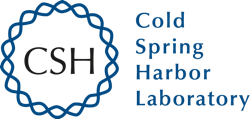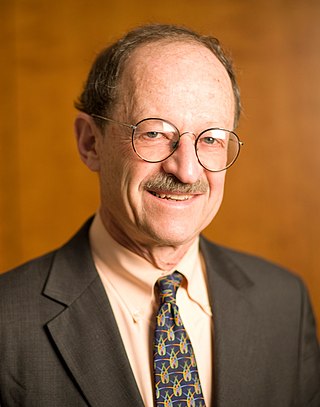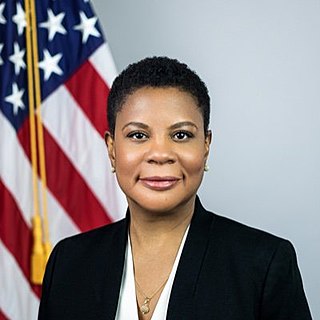
Biotechnology is the integration of natural sciences and engineering sciences in order to achieve the application of organisms, cells, parts thereof and molecular analogues for products and services. The term biotechnology was first used by Károly Ereky in 1919, meaning the production of products from raw materials with the aid of living organisms.

Michael Smith was a British-born Canadian biochemist and businessman. He shared the 1993 Nobel Prize in Chemistry with Kary Mullis for his work in developing site-directed mutagenesis. Following a PhD in 1956 from the University of Manchester, he undertook postdoctoral research with Har Gobind Khorana at the British Columbia Research Council in Vancouver, British Columbia, Canada. Subsequently, Smith worked at the Fisheries Research Board of Canada Laboratory in Vancouver before being appointed a professor of biochemistry in the UBC Faculty of Medicine in 1966. Smith's career included roles as the founding director of the UBC Biotechnology Laboratory and the founding scientific leader of the Protein Engineering Network of Centres of Excellence (PENCE). In 1996 he was named Peter Wall Distinguished Professor of Biotechnology. Subsequently, he became the founding director of the Genome Sequencing Centre at the BC Cancer Research Centre.

Leroy "Lee" Edward Hood is an American biologist who has served on the faculties at the California Institute of Technology (Caltech) and the University of Washington. Hood has developed ground-breaking scientific instruments which made possible major advances in the biological sciences and the medical sciences. These include the first gas phase protein sequencer (1982), for determining the sequence of amino acids in a given protein; a DNA synthesizer (1983), to synthesize short sections of DNA; a peptide synthesizer (1984), to combine amino acids into longer peptides and short proteins; the first automated DNA sequencer (1986), to identify the order of nucleotides in DNA; ink-jet oligonucleotide technology for synthesizing DNA and nanostring technology for analyzing single molecules of DNA and RNA.

Cold Spring Harbor Laboratory (CSHL) is a private, non-profit institution with research programs focusing on cancer, neuroscience, plant biology, genomics, and quantitative biology.

Eric Steven Lander is an American mathematician and geneticist who served as the 11th director of the Office of Science and Technology Policy and Science Advisor to the President, serving on the presidential Cabinet. Lander is a professor of biology at the Massachusetts Institute of Technology (MIT), a professor of systems biology at Harvard Medical School, a former member of the Whitehead Institute, and the founding director of the Broad Institute. He is a 1987 MacArthur Fellow and Rhodes Scholar. Lander co-chaired President Barack Obama's Council of Advisors on Science and Technology. Lander announced he would resign from the Biden Administration effective February 18, 2022, after allegations surfaced he had engaged in bullying and abusive conduct directed against his subordinates and other White House staff.

Harold Eliot Varmus is an American Nobel Prize-winning scientist. He is currently the Lewis Thomas University Professor of Medicine at Weill Cornell Medicine and a senior associate at the New York Genome Center.
The Institute of Biosciences and Technology (IBT), a component of the Texas A&M Health Science Center represents the Texas A&M University System, one of the two main Texas state university systems, in the state's and world's largest medical center, the Texas Medical Center, in Houston, Texas. The institute provides a bridge between Texas A&M University System scientists and other institutions' researchers working in the Texas Medical Center and the biomedical and biotechnology research community in Houston. It emphasizes collaboration between member scientists and others working in all the fields of the biosciences and biotechnology. IBT encourages its scientists to transfer discoveries made in their laboratories to the clinic and marketplace.

Institute for Systems Biology (ISB) is a non-profit research institution located in Seattle, Washington, United States. ISB concentrates on systems biology, the study of relationships and interactions between various parts of biological systems, and advocates an interdisciplinary approach to biological research.
A biomedical scientist is a scientist trained in biology, particularly in the context of medical laboratory sciences or laboratory medicine. These scientists work to gain knowledge on the main principles of how the human body works and to find new ways to cure or treat disease by developing advanced diagnostic tools or new therapeutic strategies. The research of biomedical scientists is referred to as biomedical research.
George Henry Poste, CBE FRS, is a former Director of the Biodesign Institute at Arizona State University.

The Human Genome Project (HGP) was an international scientific research project with the goal of determining the base pairs that make up human DNA, and of identifying, mapping and sequencing all of the genes of the human genome from both a physical and a functional standpoint. It started in 1990 and was completed in 2003. It remains the world's largest collaborative biological project. Planning for the project started after it was adopted in 1984 by the US government, and it officially launched in 1990. It was declared complete on April 14, 2003, and included about 92% of the genome. Level "complete genome" was achieved in May 2021, with a remaining only 0.3% bases covered by potential issues. The final gapless assembly was finished in January 2022.

The President's Council of Advisors on Science and Technology (PCAST) is a council, chartered in each administration with a broad mandate to advise the president of the United States on science and technology. The current PCAST was established by Executive Order 13226 on September 30, 2001, by George W. Bush, was re-chartered by Barack Obama's April 21, 2010, Executive Order 13539, by Donald Trump's October 22, 2019, Executive Order 13895, and by Joe Biden's February 1, 2021, Executive Order 14007.

Frances Hamilton Arnold is an American chemical engineer and Nobel Laureate. She is the Linus Pauling Professor of Chemical Engineering, Bioengineering and Biochemistry at the California Institute of Technology (Caltech). In 2018, she was awarded the Nobel Prize in Chemistry for pioneering the use of directed evolution to engineer enzymes.

Francis Sellers Collins is an American physician-geneticist who discovered the genes associated with a number of diseases and led the Human Genome Project. He is the former director of the National Institutes of Health (NIH) in Bethesda, Maryland, from 17 August 2009 to 19 December 2021, serving under three presidents, and for over 12 years.
Paolo Boffetta is an Italian epidemiologist. He is doing research on cancer and other chronic diseases, where he contributed to the understanding of the role of occupation, environment, alcohol, smoking and nutrition in disease development.

Alondra Nelson is an American policy advisor, non-profit administrator, academic, and writer. She is the Harold F. Linder Chair and Professor in the School of Social Science at the Institute for Advanced Study, an independent research center in Princeton, New Jersey. She is deputy assistant to the president and principal deputy director for science and society of the White House Office of Science and Technology Policy (OSTP), where she performed the duties of the director from February to October 2022. From 2017-2021, she was president and CEO of the Social Science Research Council, an independent, nonpartisan international nonprofit organization. She was previously professor of sociology at Columbia University, where she served as the inaugural dean of social science, as well as director of the Institute for Research on Women and Gender. She began her academic career on the faculty of Yale University.

Manchanahalli Rangaswamy Satyanarayana Rao known by the abbreviation M. R. S. Rao, is an Indian scientist. He has been awarded the fourth highest civilian award Padma Shri in Science and Engineering category by the Government of India. He was the President of Jawaharlal Nehru Centre for Advanced Scientific Research (JNCASR) in Bangalore, India (2003-2013).
Kalappa Muniyappa is an Indian molecular biologist and geneticist, known for his researches on the chromatization of DNA and gene targeting. He is a professor and chairman of the department of biochemistry of the Indian Institute of Science and an elected fellow of the Indian National Science Academy, Indian Academy of Sciences and the National Academy of Sciences, India. The Council of Scientific and Industrial Research, the apex agency of the Government of India for scientific research, awarded him the Shanti Swarup Bhatnagar Prize for Science and Technology, one of the highest Indian science awards, in 1995, for his contributions to biological sciences.
Shenzhen International BT Leadership Summit is a biology-focused business conference. It is held each year in September. It is arranged by the Shenzhen Municipal People's Government. It is held at the Shenzhen Convention and Exhibition Center.
The Advanced Research Projects Agency for Health (ARPA-H) is an independent entity within the National Institutes of Health. Its mission is to "make pivotal investments in break-through technologies and broadly applicable platforms, capabilities, resources, and solutions that have the potential to transform important areas of medicine and health for the benefit of all patients and that cannot readily be accomplished through traditional research or commercial activity."













